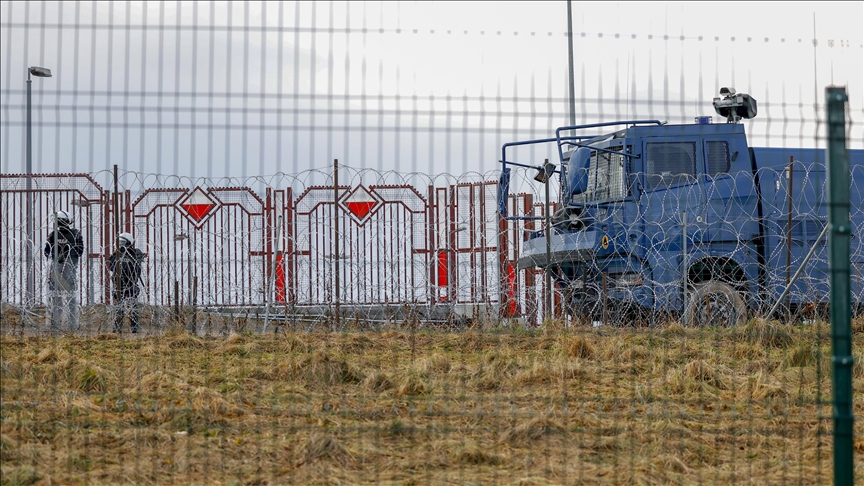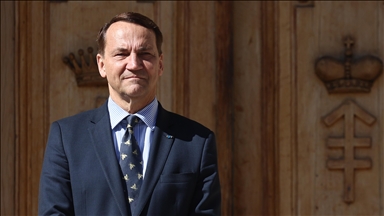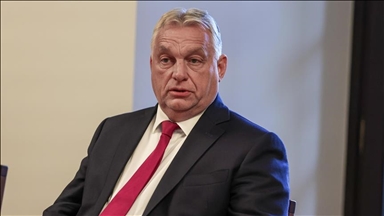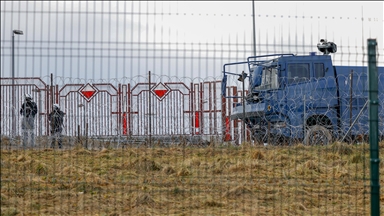Polish authorities uncover tunnel from Belarus, while Minsk denies involvement
Polish authorities uncovered 98-foot underground tunnel from Belarus into Poland, describing it as evidence of Minsk's 'state-backed smuggling tactics' to push migrants across EU's eastern frontier

- Belarusian officials, however, reject accusations that their services were involved, accuse Warsaw of 'using unverified information to inflame political tensions'
WARSAW
Polish authorities said late Tuesday they had uncovered a 30-meter (98-foot) underground tunnel running from Belarus into eastern Poland, the second such discovery in recent weeks, in what Warsaw calls a pattern of “persistent, organized attempts” to breach the frontier.
Officials said the individuals who had used the passage had been detained.
Poland's Interior Minister Marcin Kierwinski confirmed that border guards found the tunnel near the village of Kondratki, close to the heavily fortified Belarusian frontier. Speaking to Radio ZET, he said the passage “was used briefly, for around 24 hours,” before being sealed.
“Our border defenses are among the most secure in Europe,” Kierwinski said. “Roughly 98% of the frontier is covered by new systems, and every month we add to them. But Belarusian services are constantly testing our defenses — and this was another attempt.”
The tunnel, about 30 meters long and 1.8 m (6 ft) high, began on Belarusian territory and emerged on private land in Poland. Officials said they believe it was dug by migrants, possibly under the supervision of Belarusian security services.
A forensic team has entered the site to determine how the tunnel was constructed and who financed it. “Each discovery adds to our understanding of the networks operating from Belarus,” a Polish Border Guard spokesperson said, adding that the tunnel was detected through thermal imaging and other monitoring systems.
A photo released by the Polish Border Guard shows a narrow, timber-reinforced shaft leading beneath a field, cordoned off by security personnel. Officials said the tunnel had not yet become a “mass route,” but described the discovery as further evidence of Minsk's “state-backed smuggling tactics.”
Belarus denies involvement
Belarusian officials, however, rejected the accusation that their services were involved. The State Border Committee in Minsk said it had “received no reports of such a structure” and accused Warsaw of “using unverified information to inflame political tensions.”
“The Belarusian side has always acted strictly within international law and maintains that migrants approach our border independently,” the committee said in a statement carried by the state news agency BelTA.
A Belarusian Foreign Ministry spokesperson said the country “does not organize illegal migration,” calling Poland’s claims “an attempt to divert attention from its own humanitarian violations.”
Contested border
The discovery comes amid a rise in attempted crossings along Poland’s 400-kilometer (240-mile) border with Belarus — part of what the European Commission has called a “hybrid operation” by the Lukashenko regime to destabilize the EU by channeling migrants from the Middle East and Africa toward its eastern flank.
Since 2021, the area has become both a geopolitical and humanitarian flashpoint. Thousands of migrants have been stranded in the dense Bialowieza Forest, with aid groups accusing both Poland and Belarus of illegal pushbacks and the systematic denial of asylum access.
Human-rights organizations, including Amnesty International and Helsinki Foundation for Human Rights, have called for independent monitoring of the area, citing cases of hypothermia, injury, and lack of medical aid.
Political, regional context
Poland's previous conservative Law and Justice (PiS) government built a steel barrier along the frontier in 2022, complemented by thermal cameras and motion sensors. The new centrist government, led by Donald Tusk’s Civic Coalition, has pledged to maintain “strong borders” while restoring “European standards” of oversight and accountability.
Observers say the discovery is likely to bolster calls in Warsaw for further EU funding of border infrastructure, even as Brussels faces criticism for outsourcing migrant control to member states.
Similar tensions are playing out elsewhere on the EU’s periphery — from Finland’s closure of its eastern crossings after alleged Russian pressure, to Lithuania’s expansion of detention facilities for irregular migrants.








